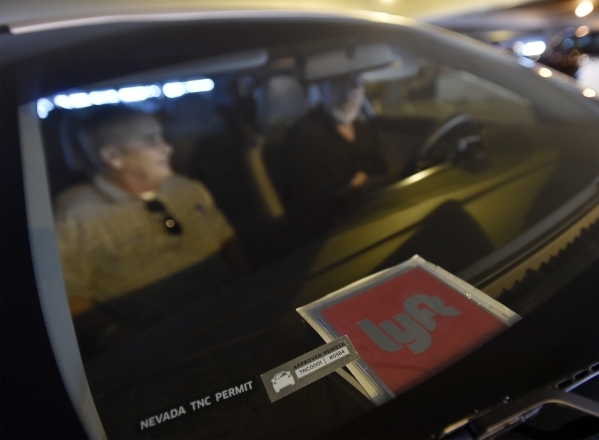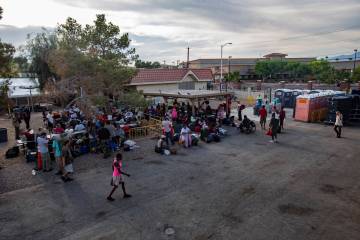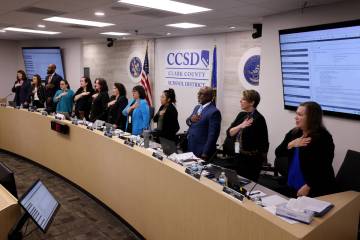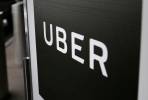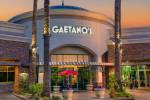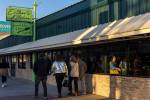EDITORIAL: Taxis adjust to presence of Uber, Lyft
For anyone who may have thought Las Vegas wasn't big enough for both taxi companies and ride-sharing services, it would appear one of the largest conventions of the year proved otherwise.
As reported by the Review-Journal's Richard Velotta, from Jan. 4-6, the two days leading up to CES and the first day of the massive consumer electronics expo, more than 53,000 people took taxis or ride-hailing rides from McCarran International Airport, 13.7 percent more rides than were provided by just the taxi industry during that same period last year. Uber and Lyft combined to give 8,246 of the rides provided from the airport, a 15.4 percent market share. Over the four days of the convention itself, there were 47,751 taxi pickups and 7,488 ride-hailing pickups, giving Uber and Lyft a 13.6 percent share.
This was the first CES that ride-hailing companies were allowed to operate at McCarran. Last year, CES organizers lobbied for the legalization of ride-hailing companies and encouraged people attending the four-day trade show to use those services. The Legislature ultimately passed and Gov. Brian Sandoval signed two bills into law last May that created the regulatory framework for such companies.
Clearly, it was smartly passed legislation, and it hasn't caused nearly the peril that cab companies predicted. In fact, in a separate report last week, Mr. Velotta noted that Clark County taxi companies' 2015 market share suffered a very minor drop, but that revenues hit an all-time high, despite taxis facing ride-hailing competition the last four months of the year. Taxi trips were down 0.45 percent in Southern Nevada in 2015, but revenue reached $425.1 million for the county's 16 cab companies, up 4.1 percent from 2014, according to Nevada Taxicab Authority statistics.
So competition hasn't been bad for cab companies, and consumers are not only benefiting from greater choice, but also from a nicer experience when they do hail taxis. The Washington Post's Emily Badger reported earlier this month that while cabbies don't have the ability to raise or lower fares based on supply and demand — as Uber does through its surge-pricing model — they do have the ability to "control many aspects of the quality of a ride. And in one fascinating consequence of the rise of Uber, it looks — in passenger complaint data — as if taxi drivers under new competition may be trying harder to give you a pleasant ride."
Ms. Badger's report cites research from the Technology Policy Institute that in New York, the number of complaints per taxi trip has declined as Uber has expanded in the city, and that in Chicago, "complaints about air conditioning, 'broken' credit card machines and rude drivers have fallen as well with the recent rise of alternatives to taxicabs."
In other words, cab companies and drivers have quickly learned to compete in those cities, just as they are now doing in Nevada. Competition creates accountability, motivation and often innovation. Government at all levels should work to create more of it.



